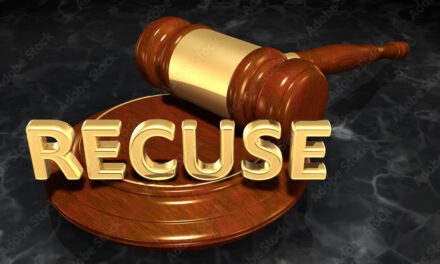Douglas O. Linder & Nancy Levit. THE GOOD LAWYER: Seeking Quality in the Practice of Law. Oxford University Press, 2014, with an enormous bibliography to be found in the footnotes. My exposition, commentary and critique will be presented in eleven parts.
This is Part X. Part I should be read first. It pertained to foundations, topics, most important sources. Other parts with concern other specific matters and they will be organized by questions about, commentaries on, and therefore arguments with different chapters of the book.
“Valuing” Other Lawyers
Here are some of the key ideas underlying Chapter #4:
- Creativity is often more important than “thinking like a lawyer,” as a classically romantic view of the role of lawyers.
- “Quality is not measured so much as it is sensed. When you are doing quality work, you have a direction and the direction feels
right.” - Feelings are important—those of the lawyer and others.
Now for parts of Chapter 4 itself:
- Humility often carries more punch than stridency. It can be much more helpful to the client in transactional work and elsewhere.
- Humility does not entail weakness; it implies only civility and listening. [MSQ: It does not even imply respect, though the appearance of respect may be a good idea.]
- Peacemaking is part of the profession. Negotiation may be a species of peacemaking. Peacemaking, lawyer arrogance and hostility are frequently solution preventive.
- Negotiation requires actual conversation and not simply speech-ifying.
- Opposing counsel, like the ideologically different, can be not only friendly, but friends. This is good for the profession and good for the clients.
- Incivility among opposing counsel is to be 100% avoided.
- Litigation does not by its nature demand incivility. If fact, if it is taken to be a creature of the pursuit of justice, it forbids it.
- The idea of a fraternal—fraternity—profession would be good for the profession and good for the clients.
For me, the ideal and spread of civility are the most important of these points. I have very little experience with overt and expressed scorn. People don’t yell at me. They are seldom obviously contemptuous of me, though they may feel that way, and they occasionally get me disqualified from parts of cases and rarely from whole cases, when I am acting as an expert witness. Maybe that is because of what others have called my professorial demeanor. I even get away with sarcasm sometimes, though what I do is light and usually not in testimony—judges don’t like it and it gets me nowhere. What I don’t know is if my experience is reflective of how the profession, for the most part, is or only how it could be.
I do not believe that lawyers viewing themselves as a fraternity of gentle”men”, i.e., “gentile persons who are also ‘gentlepersons’ and all members of the same ‘soroarofrat.’” Publicity to the rest of the culture would be just as catastrophic now as it has been in the past.
I share the underlying idea with the authors. I would formulate the position quite differently, however. Here goes.
Good lawyers, at least to some degree and with some degree of love, if not passion, love the law. The law—remember: something to be loved—requires that there bed a “learned” profession of lawyers. That profession must be honored in the culture, to some extent and not soley, as well as being treated reasonable well, for the sake of the law. In order for this to happen, lawyers must honor one another. This honoring requires civility and restraint amongst lawyers. People are imperfect, of course, so it won’t happen all the time for anyone, including lawyers, and for some lawyers it won’t happen at all.
For the latter, there are a number of ways to respond, i.e., deal with miscreant counsel:seek, receive, and try to use general knowledge about them through gossip,
·
sometimes seek, receive and then use advice from friends,
·
obtain and contribute reports to the rumor mills,
·
response in kind after staying the hand,
·
seek and special enforcement of rules usually not demanded or other lawyers, usually not reeked upon others,
·
seek judicial remedies, done in court (with “obscure clarity” if possible before judges,
·
explicit reports to judges and appropriate motions, up to and including motions for sanctions,
·
complaints to the bar,
·
complaints to other authorities,
·
and more.
As hard as this to imagine may be, all of it must be done with restraint and civility. Upon a request for relief, it should be
granted whenever the client’s interests don’t demand otherwise. There should be as little preaching, lecturing, or moralizing as possible. No put downs. Now. Can the authors adopt this view?
If the authors have the idea that their ideal is likely to come to pass, they are wrong. Teaching the ideal unconditional to their
students about conformity to the ideal is a dangerous idea. Teaching the beauty of the ideal and its merits, on the other hand, is a very good idea, indeed.
There is an interesting paradox for Christians here. If the Christian society requires a legal system, and if it is to be loved, and if loving the legal system is required of its lawyers, then love amongst lawyers is also required. See the paradox? Respect built into
zealousness is not universally possible so the same is true for love.





Recent Comments